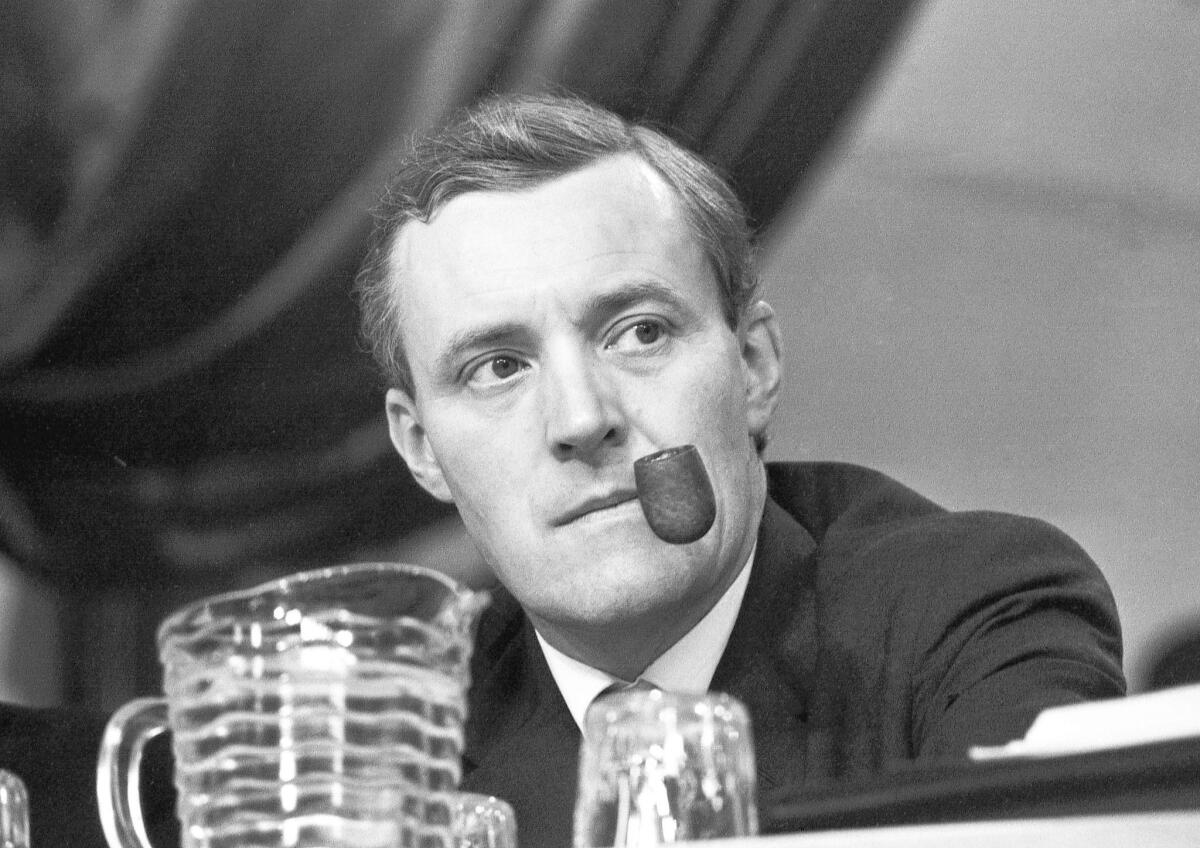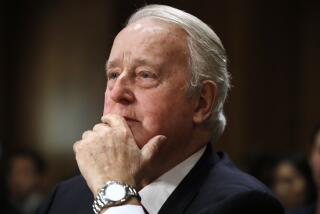PASSINGS: Tony Benn, Khushwant Singh, Scott Asheton

Tony Benn
Renounced title to stay in House of Commons
Tony Benn, 88, a committed British socialist who irritated and fascinated Britons through a political career spanning more than five decades and who renounced his aristocratic title rather than leave the House of Commons, died March 14 at his home in west London, his family said in a statement. No cause was given.
Benn held cabinet posts in Labour Party governments in the 1970s and clung unswervingly to his leftist beliefs while his party, in opposition, moved to the center and reemerged to take power again as New Labour. The change left Benn out of step with his party’s new, younger leaders.
Benn, who favored abolition of the monarchy, British withdrawal from the European Union and any strike that was going on, hadn’t changed. But his image did. Over time he was transformed from the demonized figure of the ‘70s and ‘80s to that often-treasured English archetype: the radical dissenter.
Born in London on April 3, 1925, Anthony Wedgwood Benn was the second son of William Wedgwood Benn, a Labour cabinet minister, and the former Margaret Holmes, a scholar in Greek and Hebrew studies. One grandfather was a baronet, and both had been members of parliament.
He was educated at Westminster, an expensive private school, and Oxford. In 1944, his elder brother, Michael, was killed in World War II, making Benn the reluctant heir to the title Viscount Stansgate, which George VI had bestowed on his father in 1941.
He was elected to the House of Commons at 25, but his parliamentary career seemed to come to an abrupt end in 1961 when his father died. As the new Viscount Stansgate, he was barred from the Commons so that he could take up membership in the unelected upper House of Lords.
For three years he battled to change the law to allow hereditary peers to renounce their titles. Voters in his parliamentary district of Bristol West elected him once more, even though he couldn’t take his seat in the Commons. In 1963, the bill passed, and the Times of London declared, “Lord Stansgate will be Mr. Benn today.”
He lost his parliamentary seat in 1983 when the Conservatives’ Margaret Thatcher defeated Labour. A year later he was back, returned at a special election for Chesterfield.
Benn retired from the House of Commons in 2001, after 51 years in parliament. By then he was the longest-serving Labour member of parliament in the history of the party, which he joined in 1942.
Khushwant Singh
One of India’s best-known writers
Khushwant Singh, 99, a journalist, editor and prolific writer whose work included serious histories, joke collections and one of post-independence India’s great novels, died Thursday at his New Delhi home, said his daughter, Mala Singh. The specific cause was not given.
A gleeful provocateur whose love of the limelight competed constantly with his disdain for fame, Singh was a self-proclaimed failure in law and diplomacy who turned to writing in the 1950s, soon after India’s 1947 independence, and quickly became a force in Indian journalism and literary circles. He remained one of the country’s best-known writers for more than six decades. While born a Sikh, Singh was an avowed agnostic and staunch secularist.
The son of a wealthy builder, Singh had a famously patient wife, a newspaper column that skewered diverse topics and a sign outside his apartment door that warned: “Please do not ring the bell unless you are expected.”
Singh, who often said he regretted not having sex with more women, was one of the first modern Indian novelists to openly discuss sexuality, using often-graphic descriptions that made generations of readers blush.
He rose to fame in 1956 with a short novel about the horrors of 1947’s partition, when British colonial India was carved into largely Hindu India and overwhelmingly Muslim Pakistan. Sectarian violence swept the new nations, as millions of people sought shelter across the newly created borders. More than 1 million people died.
“Train to Pakistan,” with its quiet prose and powerful imagery, remains a classic of modern Indian literature.
Scott Asheton
Drummer for punk rock’s Stooges
Scott Asheton, 64, drummer for the influential punk rock band the Stooges, died March 15 of a heart attack in Ann Arbor, Mich. His daughter, Leanna Asheton, confirmed his death.
Bandleader Iggy Pop posted on his Facebook page that he’s “never heard anyone play the drums with more meaning than Scott Asheton.”
Asheton was part of the Stooges when they formed in 1967 in Ann Arbor. His older brother, Ron Asheton, the group’s guitarist, died in 2009. The Stooges released their self-titled debut in 1969.
Although the Stooges weren’t a commercial success, they went on to become one of the significant bands in punk music. Their raw sound helped inspire the first generation of punk musicians and influenced such acts as Patti Smith, the Ramones and Sid Vicious. The group landed in the Rock and Roll Hall of Fame in 2010.
After recording three albums in the late 1960s and early ‘70s, the Stooges split and Pop went on to a successful solo career. The band reunited for 2007’s “The Weirdness” and “Ready to Die,” released last year.
Asheton was born on Aug. 16, 1949, in Washington, D.C. He played drums for other bands, including Sonic’s Rendezvous Band, the group led by former MC5 guitarist Fred “Sonic” Smith.
Times staff and wire reports
More to Read
Start your day right
Sign up for Essential California for the L.A. Times biggest news, features and recommendations in your inbox six days a week.
You may occasionally receive promotional content from the Los Angeles Times.






